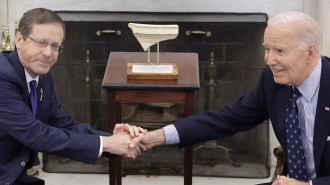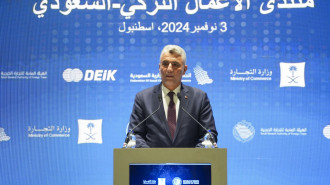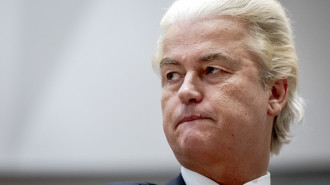Iran to jail son of Ayatollah Montazeri
Ahmed Montazeri, son of the late Ayatollah Hossein-Ali Montazeri was sentenced on Sunday in the central Iranian city of Qoms for releasing tape recordings that capture his father criticising the Iranian regime’s violent clampdown on dissidents during its first ten years in power.
Ayatollah Hossein-Ali Montazeri, was at one stage designated to be the successor of Ayatollah Ruhollah Khomenei, the founder of the Islamic regime in Tehran.
But by the late 80s he had fallen out of favour having grown disillusioned with the fledgling actions of the theocratic regime he had helped create spending his later years under house arrest until his death in 2009.
The recorded clips, made public by Ahmed Montazeri, who has also been stripped by Iranian authorities of his clerical authority, refer to a conversation dated to August 1988 between Ayatollah Montazeri and leading figures who oversaw “death committees” established to carry out the execution of political prisoners.
In the recordings Montazeri can be heard denouncing the 1988 execution of thousands of leftists and members of the now outlawed Mujahadeen e-Khalq (MEK) opposition group, who helped Khomenei topple the Shah in 1979, but were consequently purged.
 |
These ridiculous remarks are an implied confession by official organs in the Iranian regime proving the correct nature of this sound bite - National Council of Resistance of Iran statement |
 |
Twitter Post
|
Referring to the campaign of executions, during which The National Council of Resistance of Iran (NCRI) – a political umbrella coalition of five Iranian opposition political organisations led by the MEK – say as many as 30,000 political prisoners, including teenagers were killed and consequently buried in mass graves. Montazeri says that history would judge and “condemn” those responsible, describing the campaign of purges as “the biggest crime in the Islamic Republic”.
“Beware of 50 years from now, when people will pass judgment on the leader [Khomeini] and will say he was a bloodthirsty, brutal and murderous leader,” continues Ayatollah Hossein-Ali Montazeri in the tape which was released this summer.
One of the individuals referred to on the tape, who in 1988 was serving as an Intelligence Ministry official, is Iran’s current Justice Minister Mostafa Pourmohammadi.
Commenting on the recordings this summer Pourmohammadi defended his position, stating: “We take pride in executing God’s commandment with respect to the hypocrites,” using a common parlance used by Iranian officials to refer to the MEK.
Maryam Rajavi, both the head of the MEK and the president-elect of the NCRI who is currently exiled in France, has since condemned the ruling on Montazeri, calling for “justice” and accountability for those responsible for the 1988 deaths of “political prisoners” that “set an example of the adherence to principles for the resistance movement.”
In a statement the NCRI said that the actions taken by Tehran illustrated Iranian authorities’ “utter fear of further revelations regarding the 1988 massacre and the justice-seeking movement for its victims. These ridiculous remarks are an implied confession by official organs in the Iranian regime proving the correct nature of this sound bite.”
Although Montazeri has been sentenced for 21 years in jail, he is only expected to serve six due to his family’s elevated standing in Iranian revolutionary history.
The ruling has been interpreted by some analysts as evidence that Tehran maintains a brutal, tough stance to shut down internal dissidence despite the signing of a landmark nuclear deal earlier this year, and the consequent economic benefits accrued as a result of the dropping of international sanctions.







 Follow the Middle East's top stories in English at The New Arab on Google News
Follow the Middle East's top stories in English at The New Arab on Google News


